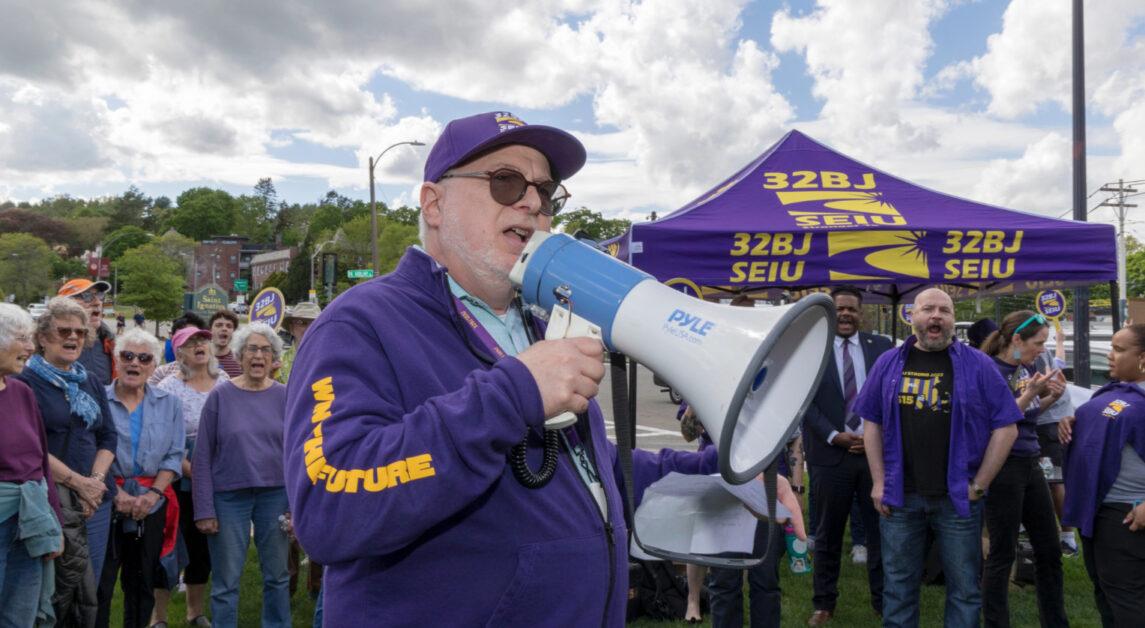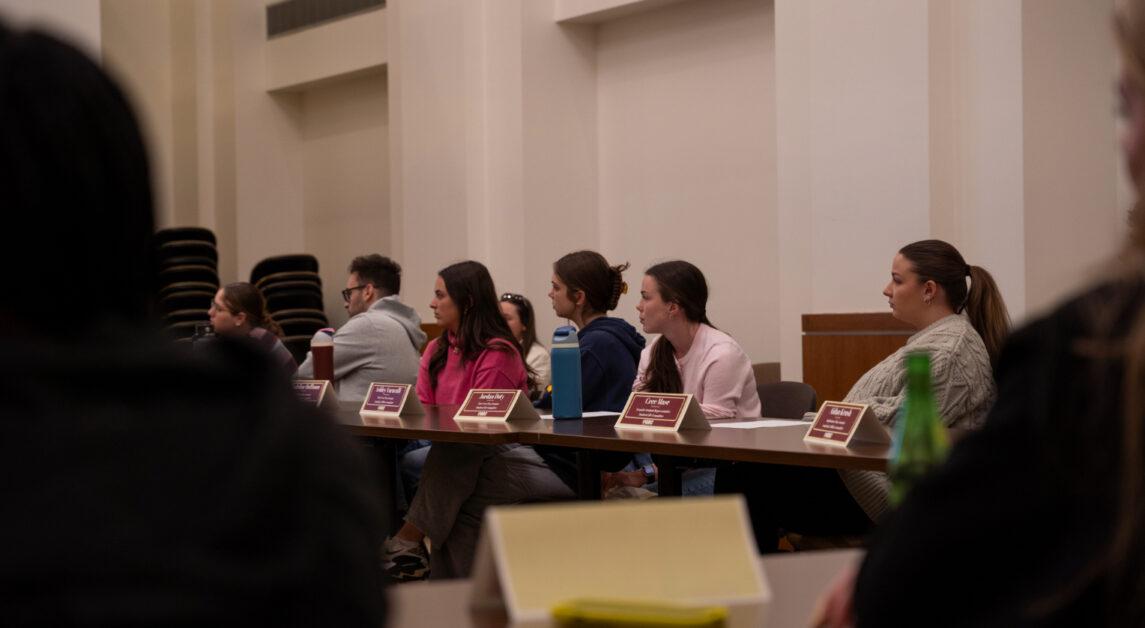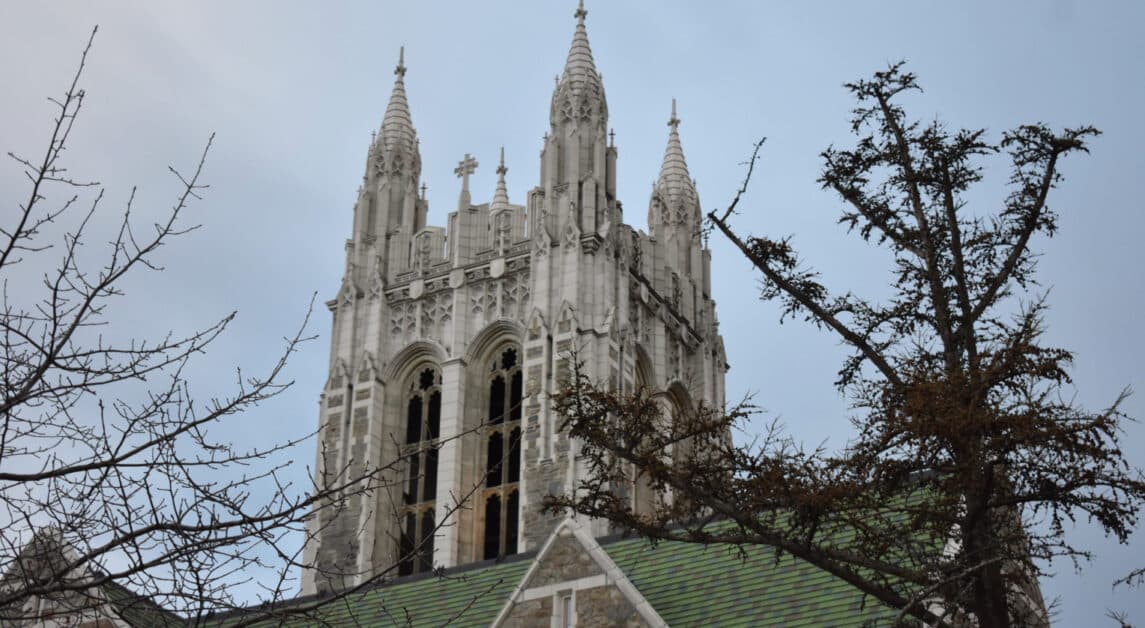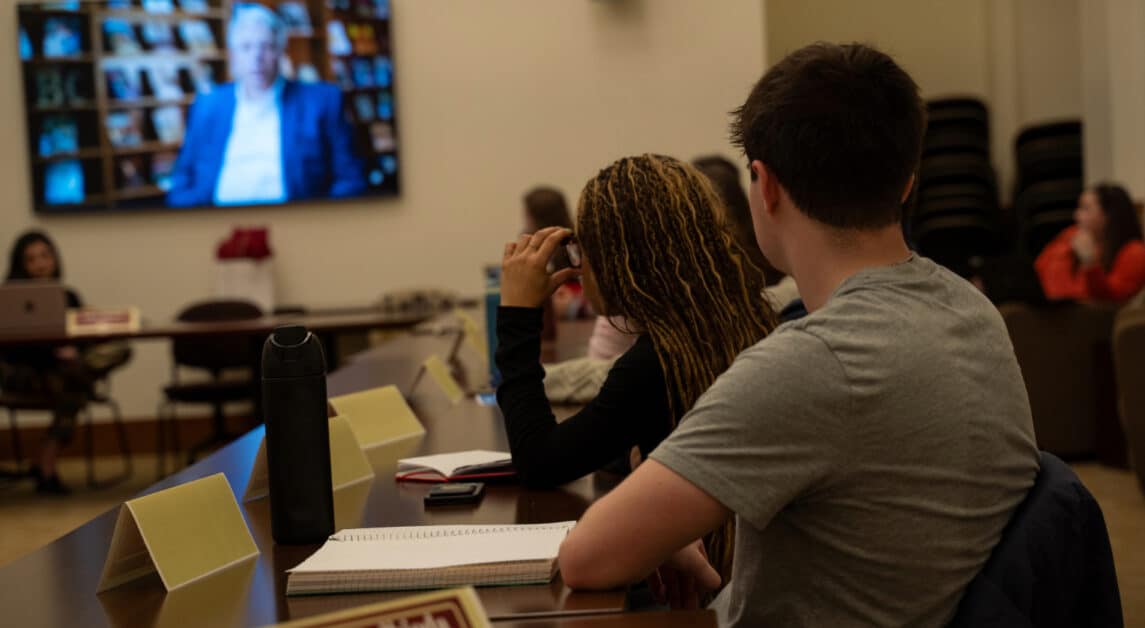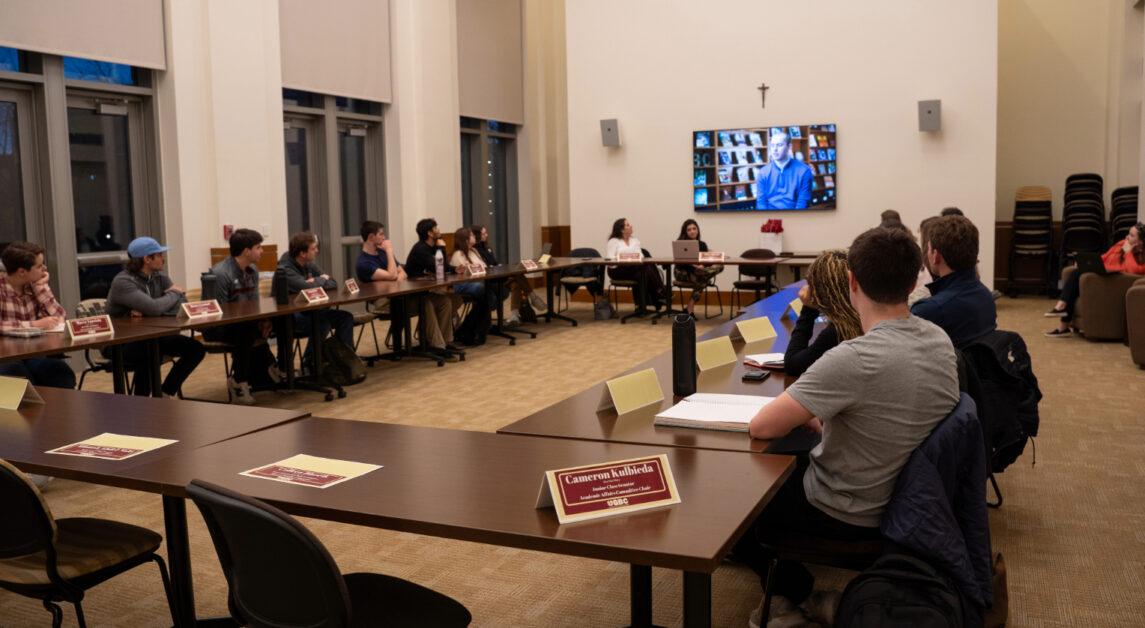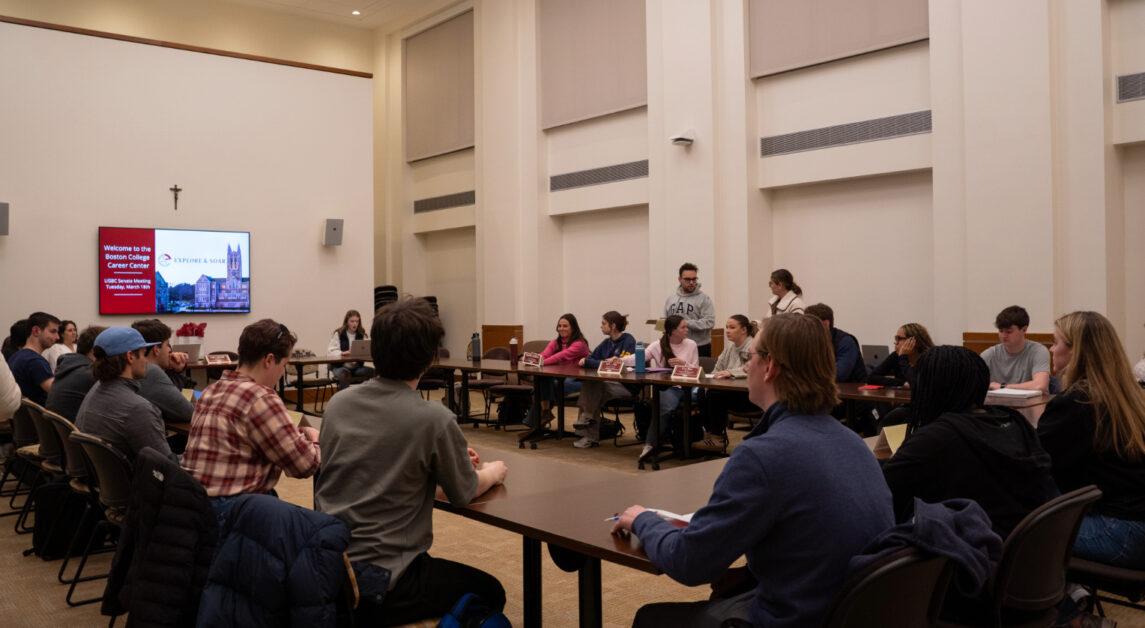On Jan. 14, Nanci Fiore-Chettiar and Chris Marchese, both A&S ’15, received an email from the Elections Committee congratulating them on being the new president and executive vice president of UGBC, respectively. Rather than celebrate, however, Fiore-Chettiar responded to the email, declining the position until every attempt had been made to generate a contested election. The Elections Committee re-opened the sign ups, and now, a month later, the two face Lucas Levine and Vance Vergara, both A&S ’15, in the election that will be decided on Wednesday.
Fiore-Chettiar and Marchese’s decision to seek a contested election fits with their vision of a UGBC more connected to the student body. Marchese expressed frustration at UGBC’s inward-looking focus-one that has frustrated members and nonmenbers alike for the past few years, this last one especially.
Marchese first decided to run for election over the summer, when, during free time at his summer internship, he happened across old Heights articles online from the ’60s, ’70s, and ’80s that chronicled the actions UGBC was taking and accomplishing at the time.
“They fought tuition hikes, they protested Boston’s ban on kegs on college campuses, and I was really impressed by what UGBC used to be able to do,” Marchese said.
Over the past 20 years, however, UGBC has transformed into an organization so focused on institutional matters that it has ceased doing what it was meant to-be an advocate for students. This past year, according to Marchese, the Board of Trustees disinvited the president and executive vice president from meeting with them throughout the year, as had traditionally been the custom for UGBC’s leaders, due to the team’s unpreparedness.
*Update: Alonsozana has refuted this claim by Marchese, stating that he and Nacier have met with the Board of Trustees on three formal occasions since last year, the most recent of which was earlier in this semester. He stated that the pair have also given updates to the Board via their meetings with the Vice President of Student Affairs, which happen on at least a bi-weekly basis.
Marchese did acknowledge that by making the split from programming, the current UGBC administration positioned the organization well to make the transition back to being an advocacy group taken seriously by the administration.
Both Fiore-Chettiar and Marchese have been involved with UGBC since their freshman year. Marchese has been a senator for the past two years and served as president pro tempore of the Student Assembly (SA) this year. Fiore-Chettiar served as the co-director of the Campus Awareness committee in UGBC last year, and has been a member of the SA since the fall.
Despite their previous involvement, however, Marchese and Fiore-Chettiar pledge to be different from the “UGBC insider teams” of past years, who often do nothing to end the bureaucracy and nepotism that many believe hinder UGBC’s effectiveness. Both Marchese and Fiore-Chettiar have expressed dissatisfaction with the current UGBC culture and hope to drastically transform it if they are elected. Fiore-Chettiar was considering leaving the organization before she decided to run for president, and only felt comfortable running for the position after she met Chris, whose vision for the organization she felt aligned with hers.
The two officially decided to run together in December, after returning to BC after Thanksgiving break. They worked on their platform extensively over winter break, revising it many times before finalizing the version that can now be found on their website. The recruited people in and outside of UGBC to help them create their platform, drawing on students from all grades and a variety of RSOs.
Many of their platform points address the transparency and accountability issues that have plagued UGBC for many years.
“Nanci and I have both taken steps in the organization to try to change it,” Marchese said, pointing to a transparency resolution he sponsored and Fiore-Chettiar supported that required UGBC to allow interested students to find out how their money was being spent.
Initiatives like these populate the “Tangibility” portion of their platform, which focuses on ways UGBC can be more visible to the student body, by publicizing their ongoing work or through the accomplishment of relatively small goals that will improve student life on campus. Another section, “Advocacy,” contains short-term and long-term policy goals that tackle issues ranging from sustainability and conduct to free speech and civic engagement. The third section, “Communiversity” (a combination of “community” and “diversity”) deals with issues such as mental health, Bystander Awareness education, AHANA and GLBTQ issues, and socioeconomic diversity on campus. Nested under this heading are points which aim to continue or breathe new life into things that UGBC has worked on in the past-for example, GLC’s 10 year plan, and the Backgrounds program, which is a discussion program exploring various aspects of diversity that Fiore-Chettiar helped create last year.
The team believes that the programming split will enable them to accomplish all their goals because UGBC can now focus its efforts entirely on advocacy and policy.
“Now, everyone in the organization is there for the same purpose,” Marchese said. “Having 100, 120 people working toward the same vision will be so powerful … Everyone has that issue or that project that they care about. If you put people on things that they’re passionate about, they’re going to work really hard toward that. If you have even just 75 percent of the organization doing that on a monthly basis, imagine what UGBC could do.”
Fiore-Chettiar believes that she and Marchese will work well together as leaders of UGBC and have the ability to take it into its new role as an advocacy organization.
“I thought that we had the same vision, and also the best differences which would allow us to bring different perspectives,” Fiore-Chettiar said. “I wasn’t going to run if it wasn’t with someone that I could believe in, and that’s why I ran with Chris.”





